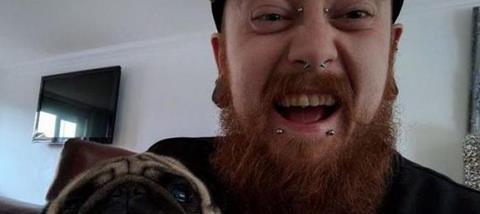
I’ve been a professional comedian for 13 years; I don’t swear on-stage, I never use sexually gratuitous language and I never use comedy to mock or deride another person or people group. I am, therefore, one of the most uncontroversial comedians in the UK today – which is not something I put on the CV. And yet, over the last decade I’ve offended a lot of people and been lambasted for being crude, inappropriate and, worst of all, not-very-Christian.
I’ve also been accused on two separate occasions (which breaks down to 0.1% of gigs I’ve done) of being racist. How is that possible? Well, because comedy is subjective and everybody has different emotional baggage and pressure points. When someone says, "He crossed a line," almost invariably that means, "He crossed my line. My moral code was offended. He fell short of the standard I set."
Should I have to go to court for the content of my comedy routines? Trust me, if I do, then practically every other comedian within these shores needs to as well.
‘What are you in for?’
‘Murder. You?’
‘Puns.’
‘You monster.’
A couple of weeks ago something happened in a Scottish Court which horrified me, and most other comedians - whatever their religious backgrounds. A man was convicted in a court of law for telling a joke. There's no doubt the joke in question (teaching a dog to perform a Nazi salute in response to the phrase "gas the Jews") was poorly-conceived and in very bad taste. But the decision to convict Mark Meecham is an assault on our freedom of speech.
Don't take offence
I want comedy to be redemptive, not used for rehashing hurtful clichés. But I don’t stretch as far as saying people should be punished for their words. I disagree with the Scottish court who ruled context was irrelevant. Context is not just relevant; it’s key. And whose moral line is it anyway?
I would love to live in a society where nobody said hateful things; where every tear had been wiped away. One day I will. But for now I would hate to live in a society where people aren’t allowed to say hurtful and hateful things. Because hate, like love, is freely chosen. Societies where people behave well all the time but lack the freedom of choice just is the definition of dystopia.
The good news is this: Christians are free – but also called – to model something better. We don’t need to be offended. Taking offence is a response to an underlying fear, and the one thing the Bible tells us more than anything else is, "Do not be afraid".
You can cry, be sad, be angry, but do not partner with fear. Taking offence whenever someone falls short of whatever the zeitgeisty moral standard is just causes us to disengage from the real people in those situations.
Taking offence is a response to an underlying fear, and the one thing the Bible tells us more than anything else is, ‘Do not be afraid’
And if, as a society, we are moving towards 1984’s brave new world, where people so keen to be on the right side of history will happily name and shame even close friends to show themselves approved, we can offer a different, more grace-based approach to those who misspeak.
Whether it’s a response to personal insult or the ad-hoc crimes of someone we’ve never met on the comedy circuit, we can speak true, God-given identity over people. Every insult of those who insult us has fallen on Jesus. So we can resist getting offended and get on with the good idea of giving people Good News. And besides, there are already people in our society calling for Christian preaching to be banned on grounds of hate-speech. So if we want the Gospel to continue having a voice, we need to champion the voices (if not the words) of the people who disagree. As Niemoller would surely have said, "First they came for the comedians, and I did not speak out – because I was not a comedian…"
Andy Kind is a comedian, author and preacher
Click here for a free sample copy of Premier Christianity magazine




























